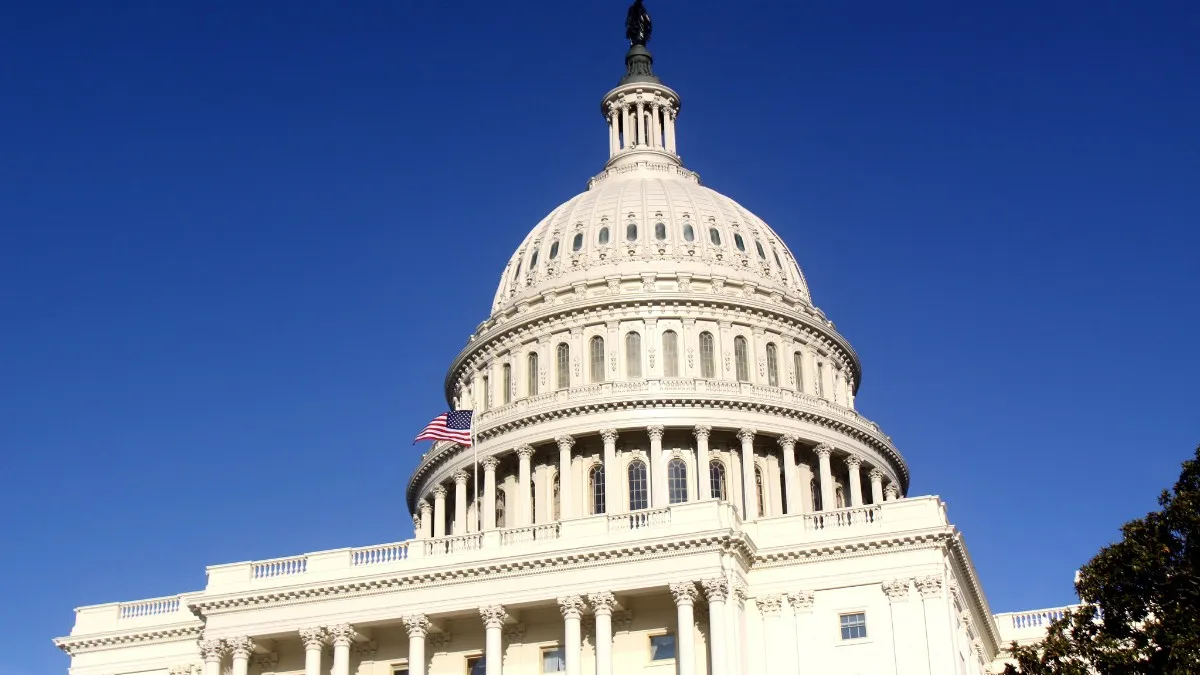UPDATE: Dec. 28, 2020: President Donald Trump signed the original coronavirus relief bill Sunday night without his demanded revisions. In a statement, Trump also noted that the House and Senate would vote Monday on a separate bill that would increase the direct payment amount from $600 to $2,000 per adult.
UPDATE: Dec. 23, 2020: President Donald Trump said in a video posted to Twitter Tuesday night that he would not sign the coronavirus relief bill unless it is amended. Trump asked Congress to make a number of revisions to the bill, including increasing the proposed direct payment amount from $600 per adult to $2,000 per adult.
UPDATE: Dec. 22, 2020: Both the House and Senate passed the bill Monday night, sending it to President Donald Trump's desk.
UPDATE: Dec. 21, 2020: Congress has published the text of the coronavirus relief bill. If enacted, it would extend employer tax credits for providing both paid sick leave and paid family and medical leave under the Families First Coronavirus Response Act (FFCRA) through March 21, 2021.
Additionally, the employee retention tax credit established by the Coronavirus Aid, Relief and Economic Security Act would be extended through July 1, 2021. The bill would increase the fully refundable portion of qualified wages from 50% to 70%, among other changes.
The Senate is expected to vote on the bill by late Monday night, Politico reports.
Dive Brief:
- Congress has reached an agreement on a coronavirus relief bill before the end of the year, Democratic House and Senate leaders said in a Dec. 20 statement.
- The package provides a tax credit to support employers offering paid sick leave to employees, "based on the Families First framework," per the statement. It also extends the IRS' employee retention tax credit and includes more than $284 billion in Paycheck Protection Program loans for businesses.
- Other provisions of the bill include a "strengthened" earned income tax credit and child tax credit, a new round of direct payments worth up to $600 per adult and child and enhanced unemployment insurance benefits, among others. Votes on the bill are scheduled for Monday, Politico reported.
Dive Insight:
The news comes as the FFCRA, which promulgated two types of emergency paid leave for U.S. workers at employers with fewer than 500 employees, is due to sunset in just 10 days. In recent months, observers were uncertain whether Congress would extend the FFCRA's deadline into next year. This week's emergency legislation may provide an answer.
"Our best read indicates that as of 1/1/2021 employers are no longer required to provide FFCRA leave," Jim Paretti, shareholder at Littler Mendelson, said in an email to HR Dive. "However, those employers who provide leave in line with FFCRA terms can continue to get a federal tax credit for leave through March 31, 2021."
Among the extensive list of provisions in the bill — which is over 5,000 pages in length — is the No Surprises Act, which would create requirements for group health insurance plans that provide coverage of certain emergency healthcare services. That act aims to prevent surprise medical billing and would direct the heads of federal agencies including the U.S. Departments of Health and Human Services, Labor and the Treasury to issue regulations implementing the act's provisions.
The inclusion of the surprise billing provisions "is terrific news," Kim Buckey, vice president of client services at employee benefits administration firm DirectPath, said in an email. "Previously, there was a patchwork of 31 state-based programs that had attempted to address this issue, with some states taking a more comprehensive approach than others."
Air ambulance service, which Buckey said state-based programs could not address, is one source of surprise billing that would be addressed by the legislation. Though it is unclear how the act's arbitration system would work, "this is an important step in the right direction for protecting consumers, including those who did all the right things to ensure their care was in-network but received surprise — and balance — bills through no fault of their own," Buckey said.














